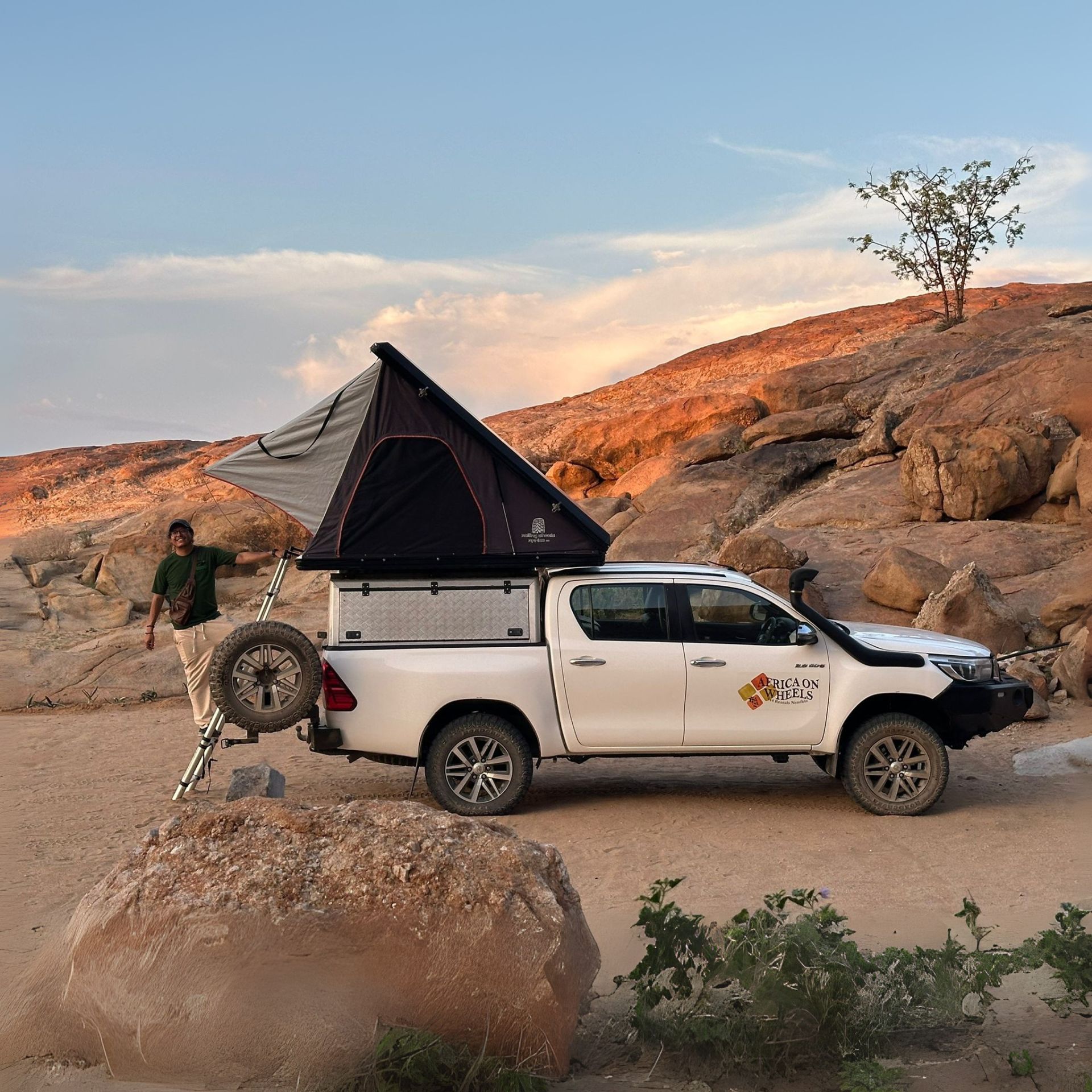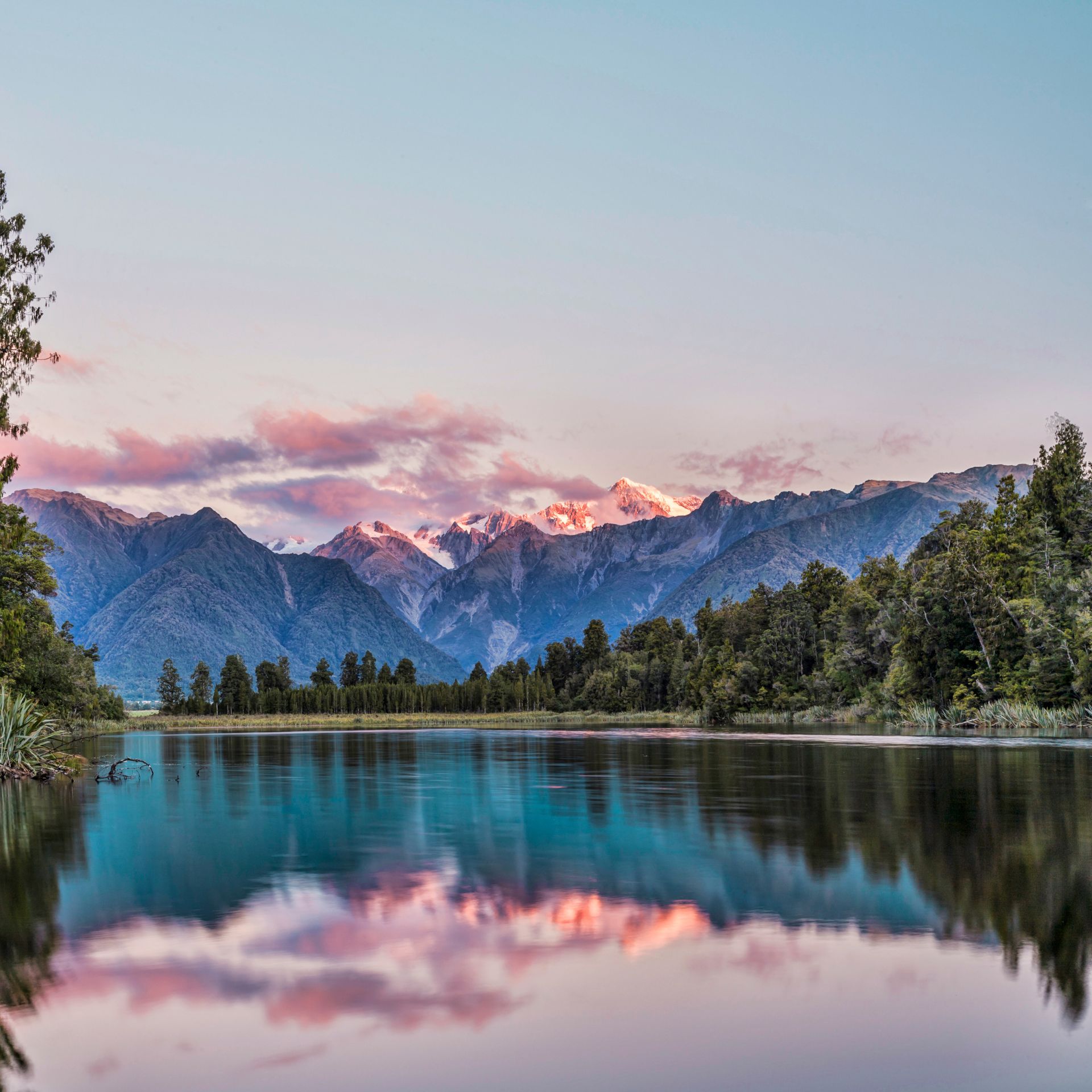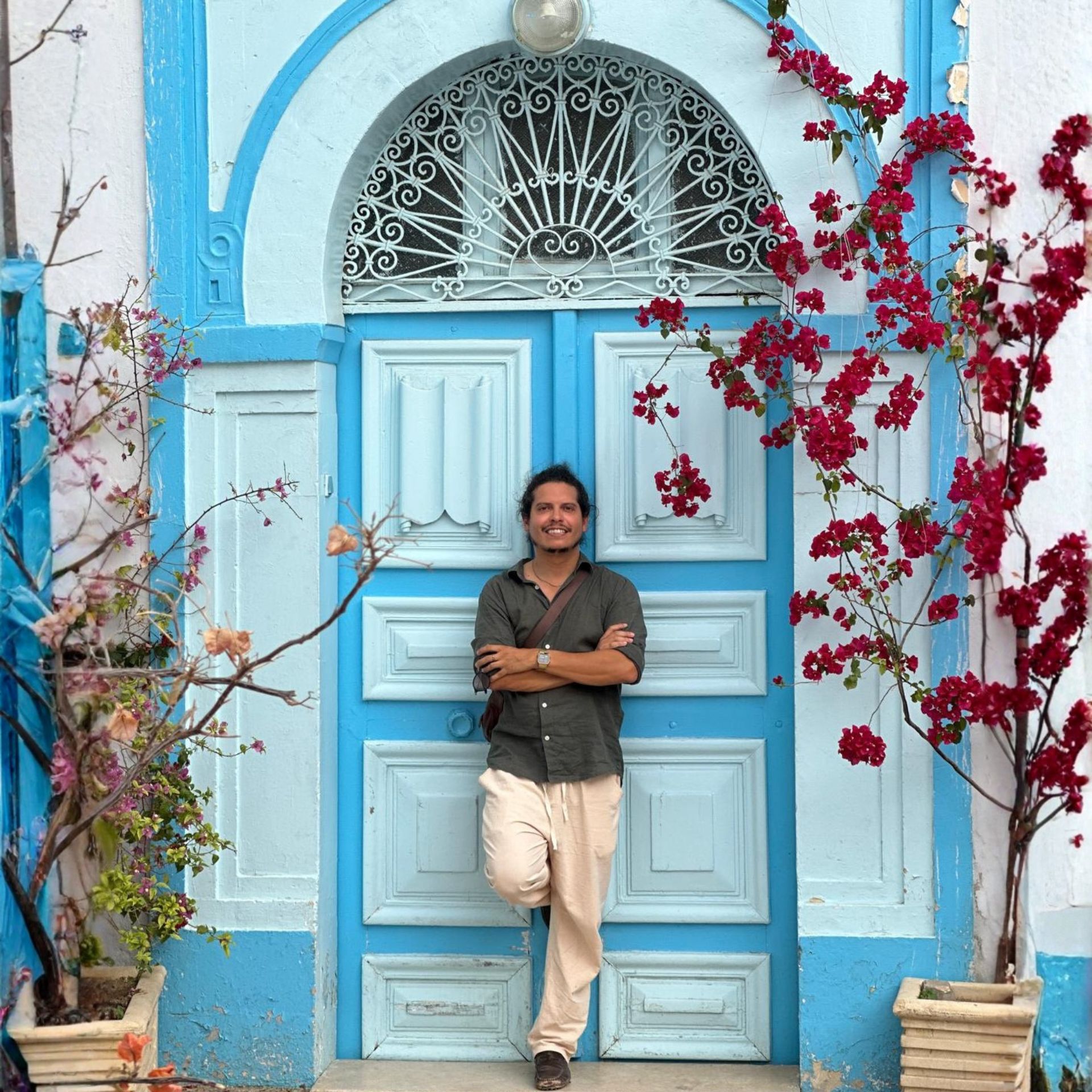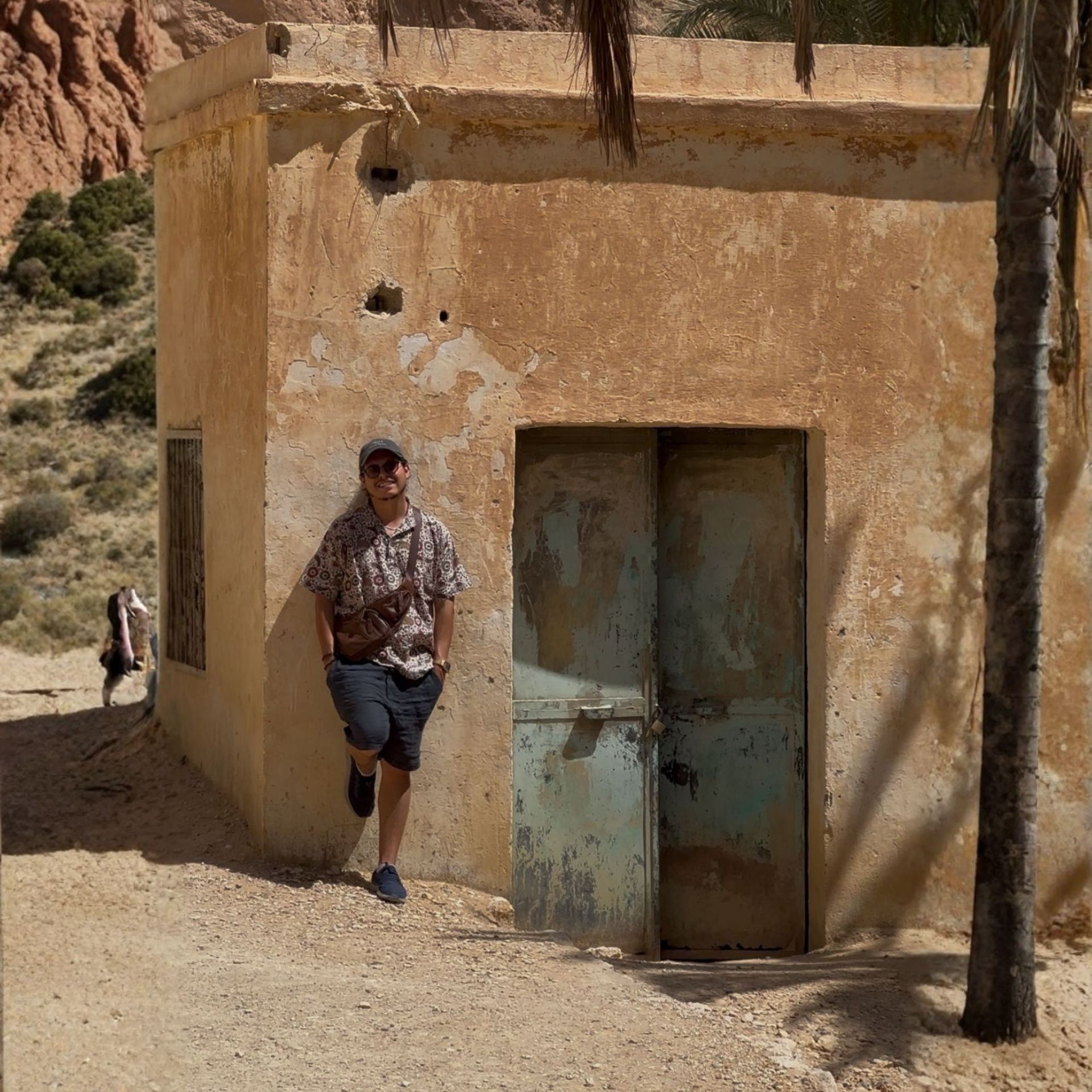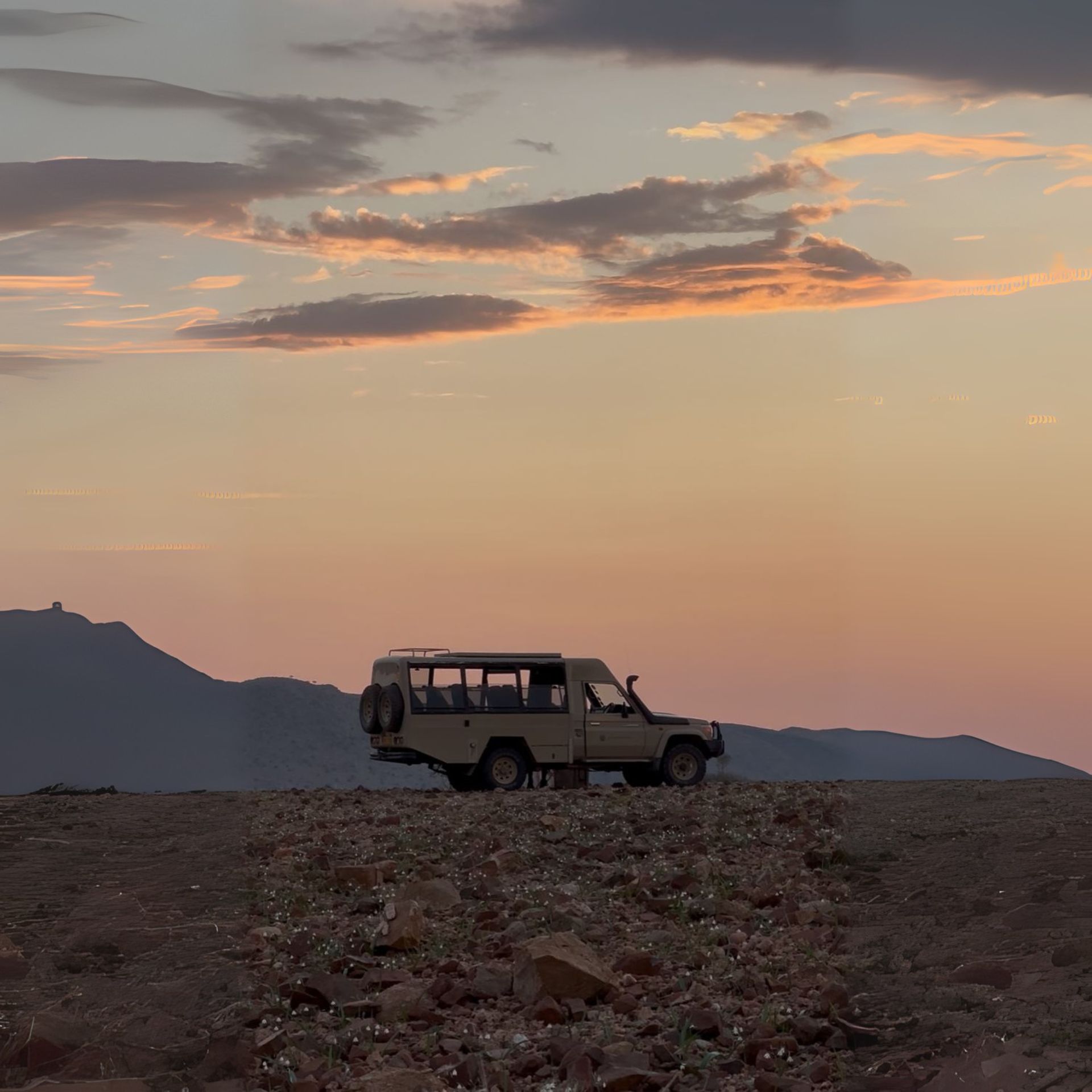Going on a gorilla trekking in Uganda is an experience of a lifetime. These are the do’s and don’ts when planning your trek at the Bwindi Impenetrable Forest.
My legs were already exhausted as my group went deeper into the jungles of the Bwindi Impenetrable National Park of Uganda. Even though we could not see them yet, we all knew gorillas were somewhere around us. The sounds of bushes and trees shaking, the silent look from side to side of our ranger, and the distant growl of young gorillas calling their mothers, were signs that we were about to experience our first gorilla encounter.
No more than one minute later, the ranger stopped us, gave us a short briefing on how to behave, and told us that a family of more than 12 gorillas was just a few meters in front of us.
The first time you see wild gorillas is an experience to never forget, and the Bwindi Impenetrable Forest is one of the best places to do gorilla trekking. It has not only the largest amount of mountain gorillas in the world, but it’s also one of the safest and most exciting places to do it.
What else should you keep in mind before going on a gorilla trekking in Uganda? This is what this article is about.
Read more: How to choose the perfect African safari trip
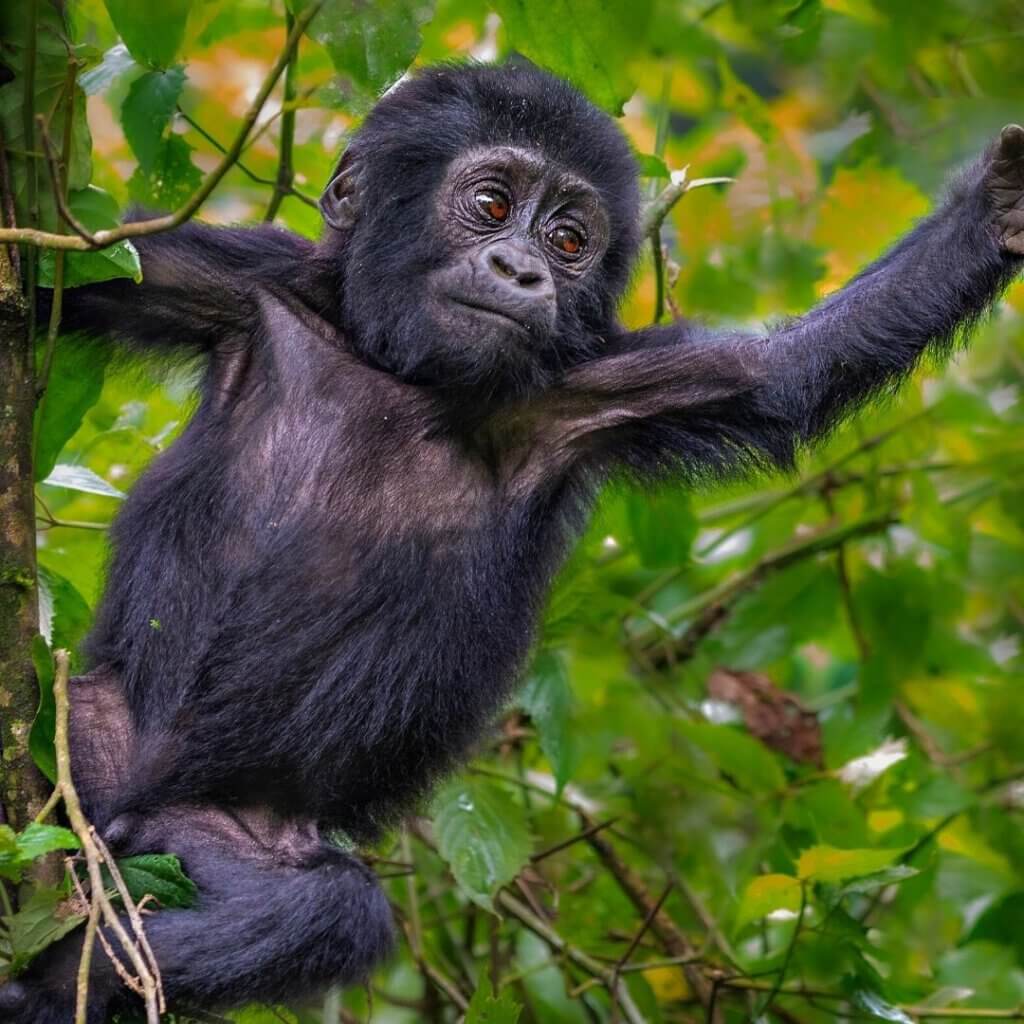
Understanding Bwindi Impenetrable Forest National Park
There are two places for mountain gorilla trekking in Uganda: Bwindi Impenetrable Forest National Park and Mgahinga Gorilla National Park. While both parks have built a name for seeing these giants, Bwindi Impenetrable Forest stands out as probably the best place in the world to see gorillas.
With approximately 300-400 gorillas living in Bwindi, more or less half of the gorilla population in the world lives in this park. Additionally, it is the home of the largest number of habituated gorilla families in Africa. Travelers visiting Bwindi have a 99,9% chance of seeing gorillas in the wild. Due to the number of daily permits and families being tracked and protected, it is also one of the few places where gorilla trekking can be adapted to your fitness level and personal wishes.
Bwindi is enormous, and gorilla treks happen in four different park sectors. However, most operators considered the northwestern part of the park the best place to go. Here, you can stay in the region of Kanungu and find accommodation for all budgets and restaurants, bars, and craft shops. Development is also increasing in Kanungu. Local communities are trying to develop tourism by offering tours and meetings with the Batwa, one of the ethnic groups living inside the national park.
Learn everything about safaris in my “safari only” section

Most tour operators will take care of organizing your accommodation, permits, schedules, and activities. However, if you travel to Bwindi independently, these are the best lodges to stay in Buhoma – Bwindi nearest town:
Self-driving in Uganda
Exploring Uganda on your own terms is one of the most rewarding ways to experience the country’s raw beauty. Every traveler in Africa dreams with a big road trip adventure in Africa.
Fortunately, East Africa has great roads and is building an infrastructure for independent travelers that soon can be compared to South Africa or Namibia. Also, with companies like Self Drive Uganda, doing an independent road trip in East Africa has never been easier. This locally-run company specializes in 4×4 self-drive rentals, including rugged Land Cruisers and vintage Land Rovers with rooftop tents.
Rates start at just $50 USD per day for a basic vehicle, or $90 USD per day if you opt for the full road trip experience with a rooftop tent. Additionally, Self Drive Uganda can handle every detail of your journey: from booking national park permits to organizing experienced guides and even helping you extend your road trip into other East African countries like Rwanda, Kenya, and Tanzania.
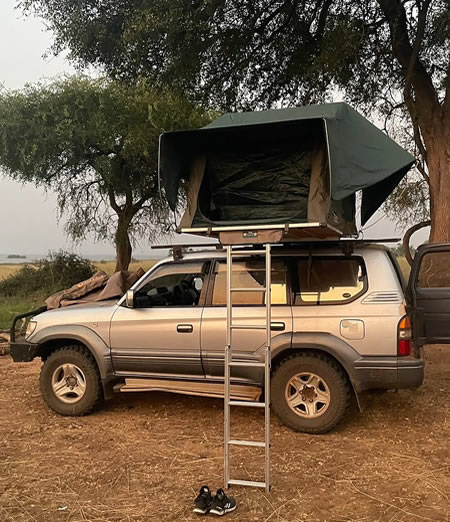
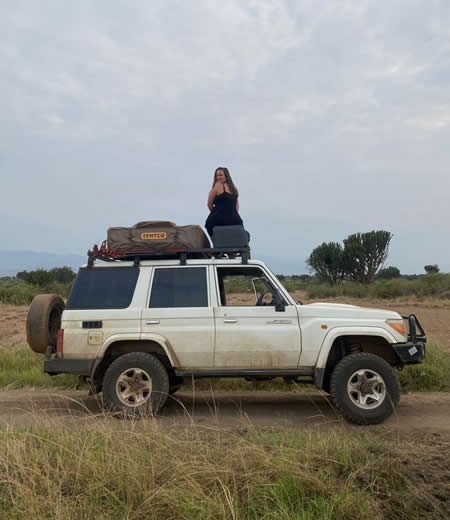
Where to stay
- Trackers Safari Lodge (Kanungu’s only 5-Star lodge)
- Buhoma Lodge (Mid-class lodge located next to the Bwindi Impenetrable Forest)
- Haven Lodge Buhoma (4-Star lodge with excellent panoramic views)
- Volcanoes Bwindi Lodge (Budget-friendly lodge with ideal location)
- CTPC Gorilla Conservation Camp (Budget-friendly lodge that focuses on conservation and community development)
The average price for accommodation in this part of Uganda is 100 USD a night. Budget accommodation can cost 50 USD for a double bedroom and luxury accommodation starts at 300 USD per night.
INSIDER TIP:
Unless you have your own 4×4 vehicle, visiting Bwindi Impenetrable Forest independently is extremely expensive and complicated. Roads are in large sections in terrible shape, and therefore car rentals charge ridiculous prices to independent drivers. Being part of a private tour is the most comfortable and inexpensive choice if you want to see gorillas. Tour operators will take care of everything and can quickly adapt an itinerary according to your budget and needs.
Read more: Where Is The Best Place To Do Gorilla Trekking In East Africa
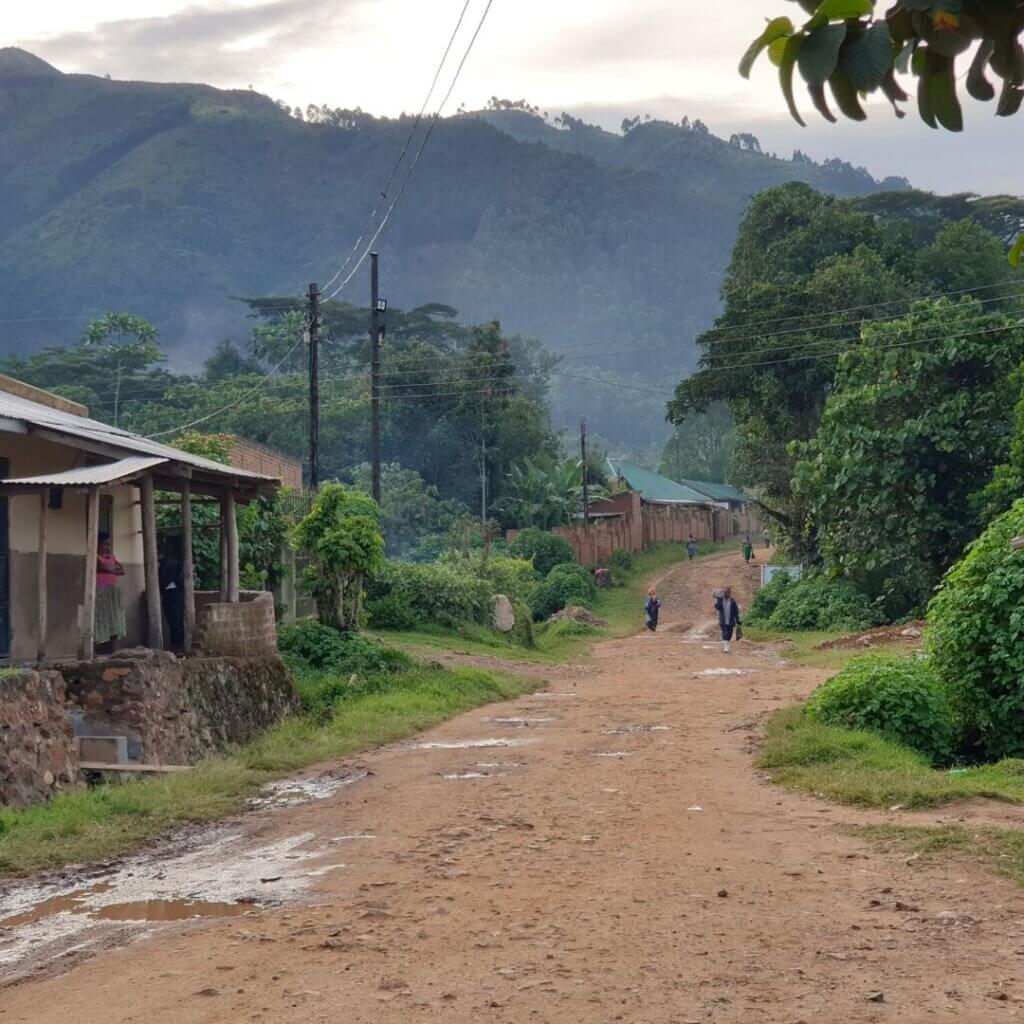
How expensive is a gorilla permit in Uganda
When it comes to gorilla trekking in Uganda, the first thought on everyone’s mind is the price. Gorilla treks in East/Central Africa are considered one of the most expensive activities globally and something only a few people can afford in their lifetime.
Even though these permits are costly, the money raised by them is used to protect the gorillas from trafficking and poaching, as well as to help the communities around to grow up and see tourism as an opportunity to move forward.
The cost of a single gorilla permit in Uganda is 700 USD per person. With this permit, you can enter the Bwindi Impenetrable Forest and participate in a one-hour gorilla trekking tour.
Tours do not have any additional cost. However, a tip of 20-25 USD per person is expected by the rangers and guides working at the national park.
Additionally, the Uganda Wildlife Authority only issues 152 gorilla permits every day for the Bwindi Impenetrable National Park and 8 permits daily for the Mgahinga Gorilla National Park.
Read more: Why You Need To Do A Gorilla Trekking In Rwanda
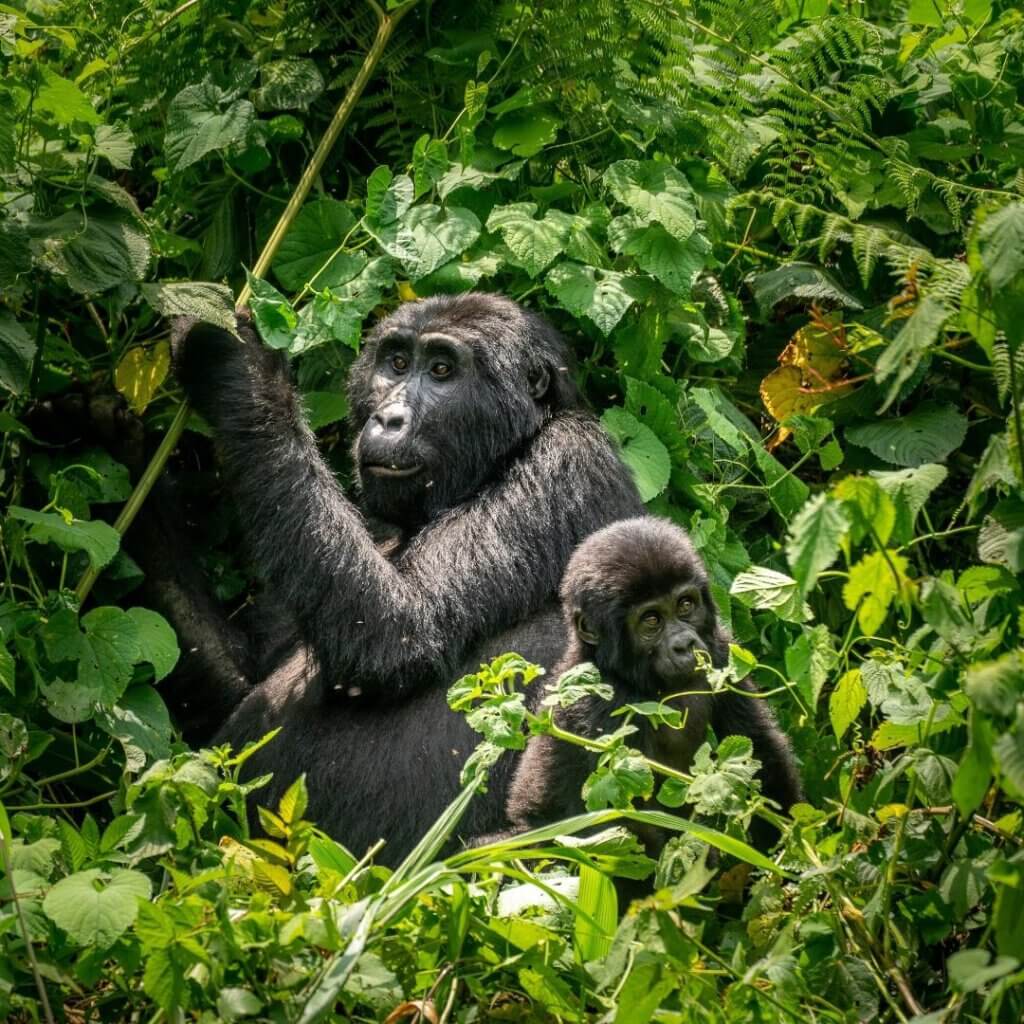
All prices for a gorilla permit at Bwindi and Mgahinga are:
- 700 USD for foreign tourists for one-hour gorilla trekking.
- 1500 USD for foreign tourists for a four-hour gorilla habituation tour.
- 600 USD for foreign residents for one-hour gorilla trekking.
- 1000 USD for foreign residents for a four-hour gorilla habituation tour.
- 250.000 UGX (around 70 USD) for East African citizens for one-hour gorilla trekking.
- 750.000 UGX (around 210 USD) for East African citizens for a four-hour gorilla habituation tour.
While I was doing my gorilla trek in Uganda, there were 24 people divided into 3 groups. To create a minimal impact on the habituated family and make a more memorable experience for the traveler, Bwindi only allows a maximum of 8 people in every group.
INSIDER INFO:
There are 19 habituated families in Bwindi and only 1 habituated family in Mgahinga.
Read more: Kwita Izina – A Ceremony To Name Baby Gorillas
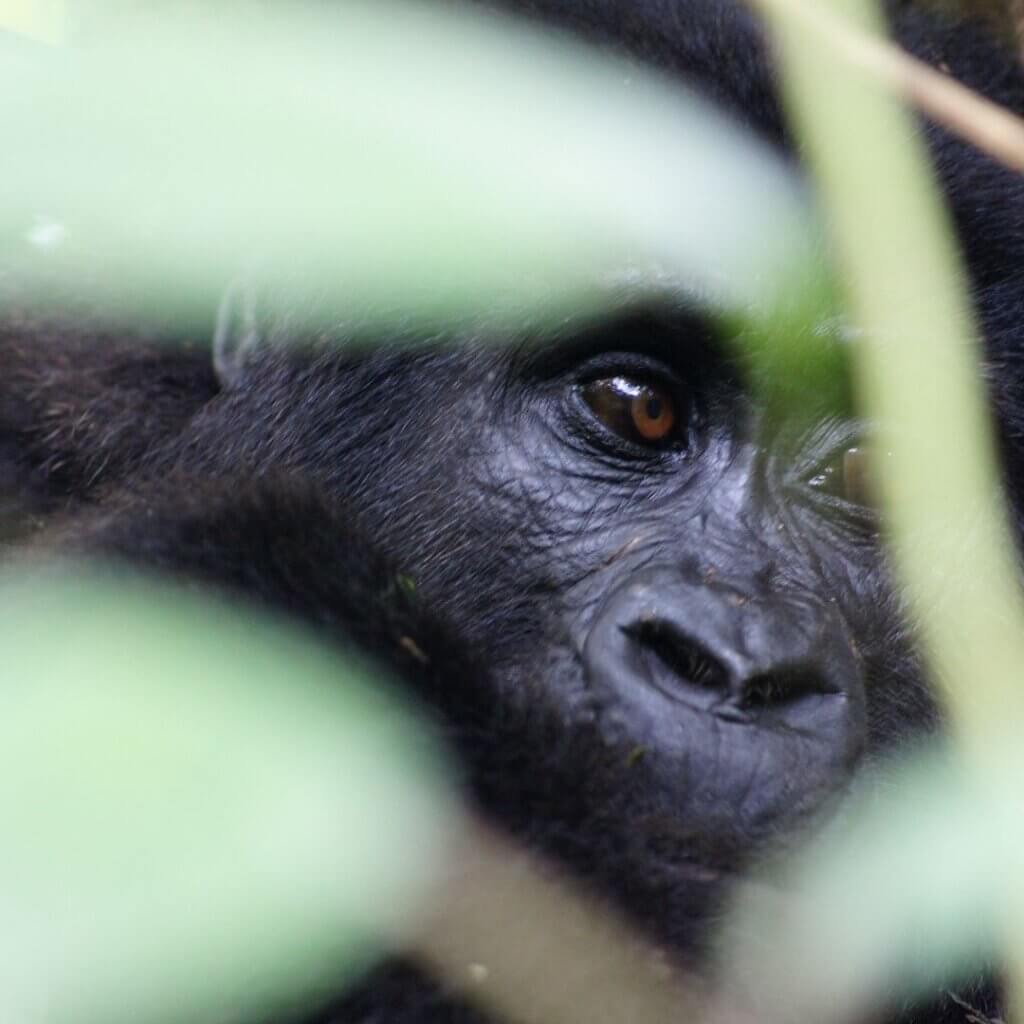
Furthermore, the more groups available during the day, the more flexibility you can have on how long you want the trek to be. The time with the gorillas is always exactly 60 minutes. However, the trekking time depends on how far the family of gorillas is and how long you want to hike.
During my tour, I got the option of choosing between a 15-minute trek, a 60-min trek, or a 150-minute trek – of course, I went with the long one.
NOTE: Gorilla permits must be obtained beforehand from Kampala’s UWA (Uganda Wildlife Authority) office. You can get more information by contacting the UWA by e-mail or call.
You will be denied entry if you don’t arrange a permit before. A more comfortable and more accessible choice is getting it through a tour company – with most companies, the application for the permit is free if you take part in one of their tours.
Whether you plan to get your permit independently or with a tour operator, it is recommended to apply for your permits as soon as you have your travel dates set. Permits can get fully booked up to 6 months in advance in the high season. Even though COVID has heavily affected the number of visitors arriving daily in Uganda, try to arrange your permit as soon as you can to avoid any disappointment.
Read more: What to bring and wear for gorilla trekking

How does a gorilla trekking in Bwindi tour goes
Before the gorilla trekking
Gorilla treks start early. The first briefing began at 7 am at the principal office of the Bwindi Impenetrable Forest, and we had to arrive there 15-20 minutes before to sign in and get our permits controlled.
While all travelers arrive, there are dances and cultural presentations taking part. We could also taste some of the local coffee, see some of the crafts the women in this part of Uganda make, and learn more about the Bwindi National Park in a small museum right at the information office.
You can also have a quick breakfast at this time. However, most operators and hotels recommend you to take breakfast for the trek and wait until the ranger makes a break for the whole group to eat.
Eating inside the national park is taboo, so the rangers will only allow it in designated spots. You will also have to carry any kind of trash with you (including fruit rests) and not dispose of anything in the forest.
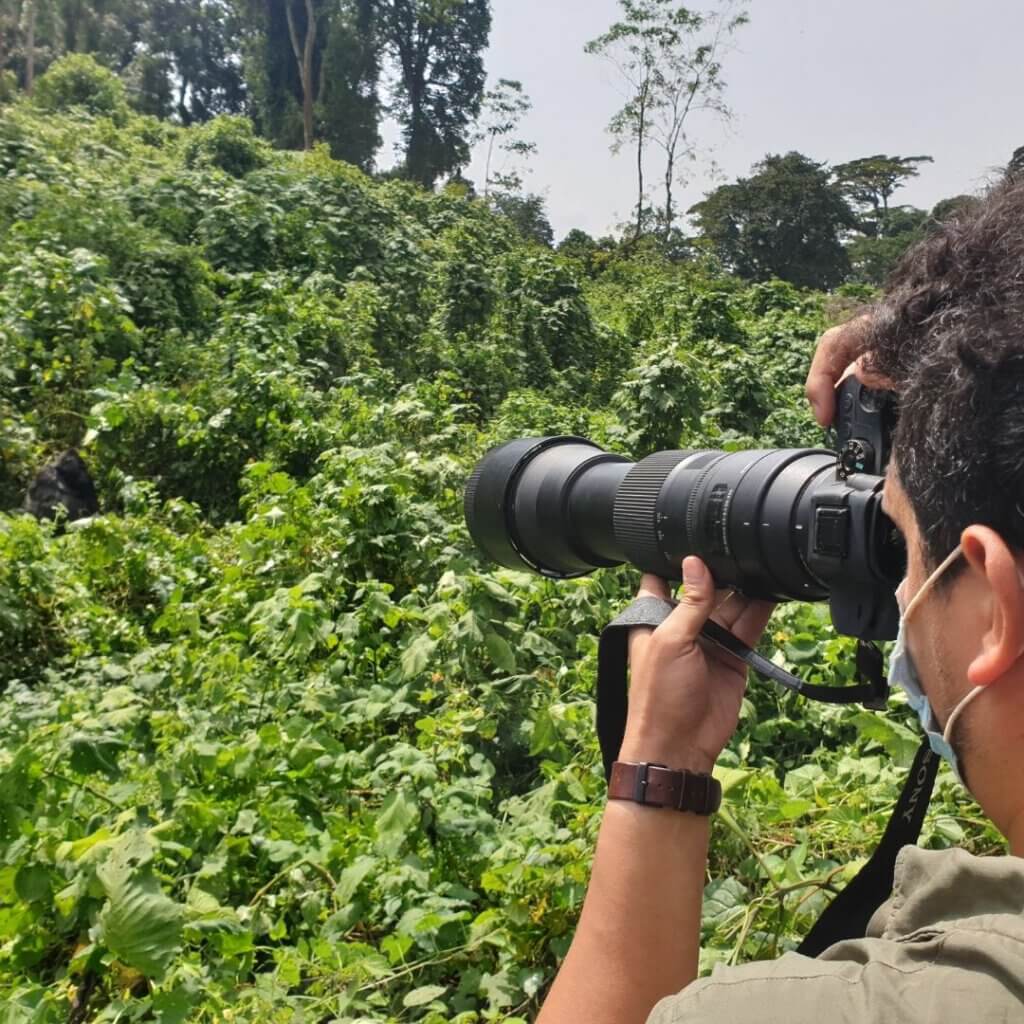
The first briefing is about the trek itself and the families living in this part of the forest. After the groups get divided, and a ranger for your group gets selected, you can start the trek into the deep jungle of Bwindi.
Drinking water is allowed at any time during the trek. However, once you are next to the gorillas, you will have to wear a disposable mask, and you are not allowed to drink anything.
The idea of using a disposable mask started during COVID. However, rangers informed us that they will probably keep this policy indefinitely, as gorillas can easily catch diseases from humans.
Read more: Turning animal poachers into wildlife conservationists
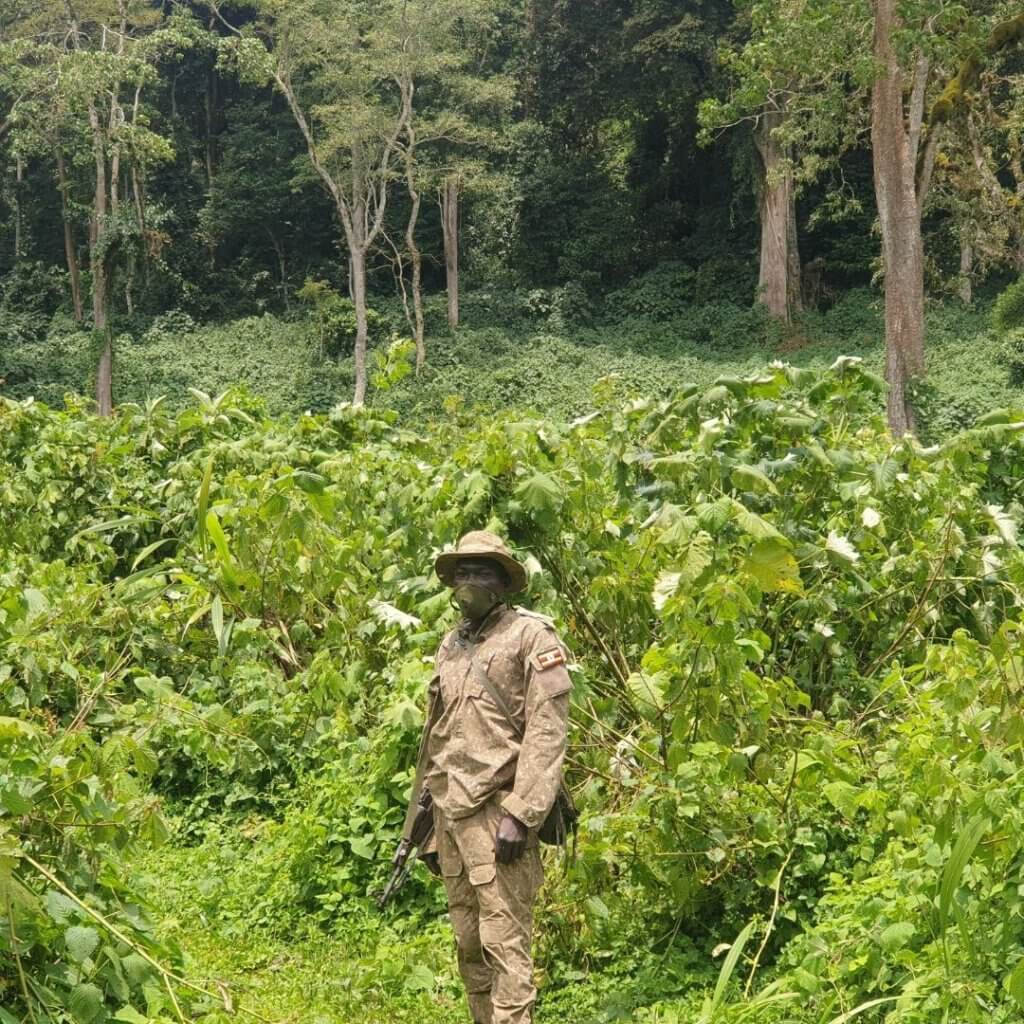
During the gorilla trekking
During the gorilla trekking, your ranger will inform you about gorilla behavior, the family you are visiting, and how rangers communicate and track gorillas. The rangers have a lot of knowledge of these creatures and can answer every question you have related to the tour.
My gorilla trekking tour in Uganda was one of the longest. We arrived at the national park at 7 am, started the time around 8 am, trekked for more than 2 hours, spent 1 hour with the gorillas, took a break for 30 minutes, and hiked 2 hours back to the information center.
The whole activity took a bit more than half a day, and it was one of the best experiences in my life.
Read more: Everything you need to know about Queen Elizabeth National Park in Uganda

What other activities can you do in Bwindi?
With tourism being considered an option to develop the smaller communities around Bwindi, there is a lot of offer for activities to do. No matter what budget you have or what kind of traveler you are, there is something for you.
These are some of the best activities you can do outside the Bwindi Impenetrable Forest:
- Coffee tours – Here, you will learn how to collect, dry, roast, and prepare Ugandan coffee
- Tea plantation tours – These tours offer an insight into the tea industry of Uganda. From its extensive plantation visits to the final preparation of this drink
- Visit a craft market – Just outside the Bwindi Impenetrable Forest National Park entrance, there is a small market with 10-15 shops selling crafts.
- Bar hopping and street food tasting in Buhoma – Ugandans understand how important it is to make a visitor feel welcome, and the bars in Buhoma are the best place to hear about local life and meet new friends.
- Batwa cultural village – Batwa communities have been displaced over the past decades. With these tours, you can learn more about their traditions and support their integration into modern society.
- Pay a visit to the CTPC Gorilla Conservation Camp – This is a great place to see the more significant impact your contribution makes in the community. You can learn at the CTPC how gorillas are being protected and how whole villages benefit from them.
Read more: How to plan a chimpanzee trekking in KIbale’s National Park
Read more: The Batwa People Of Uganda – A Tribe On The Edge Of Disappearing

I traveled to Uganda using a private company. Rafiki Safaris Uganda not only helped me plan the perfect itinerary, but they also informed me about all these additional activities I could do. Even though traveling independently would have given me way more flexibility, I think my whole trip would have been more expensive without Rafiki Safaris.
They do not only plan tours to the Bwindi Impenetrable Forest but also take care of your whole stay in Uganda. From hotel bookings in Kampala and airport transfers to day trips around the city and transfers to the border if you plan to cross from Uganda to Rwanda or Congo overland.
Read more: Which are the best national parks in Uganda
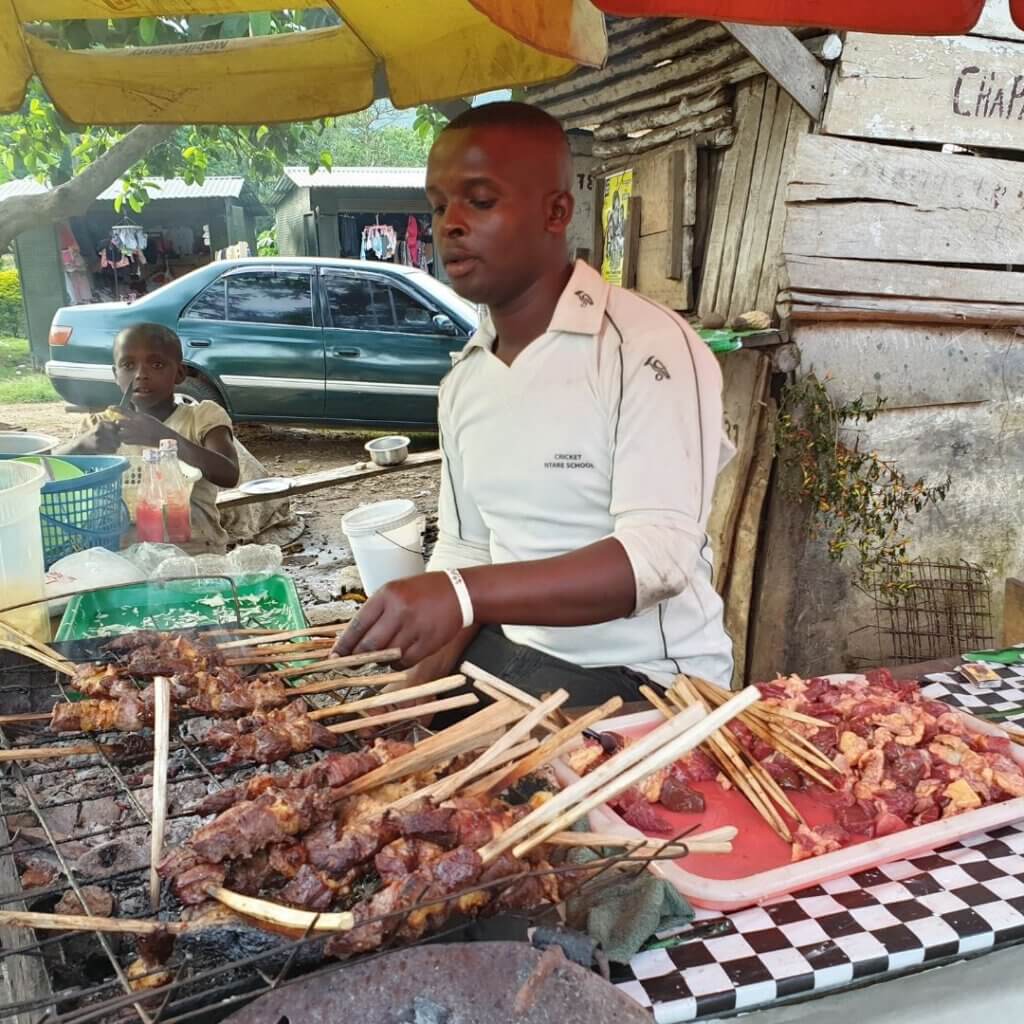
Planning a trip to Uganda independently is fun. However, if you want to arrange everything with tour operators beforehand from the comfort of your home. SafariBookings is the best platform for it.
They have the largest database of tour operators in Africa and you can simply send a request and negotiate a tour and a price directly with the operator. You don’t have to pay any additional fees.
These are some of the most popular tours at the Bwindi Impenetrable Forest at SafariBookings

